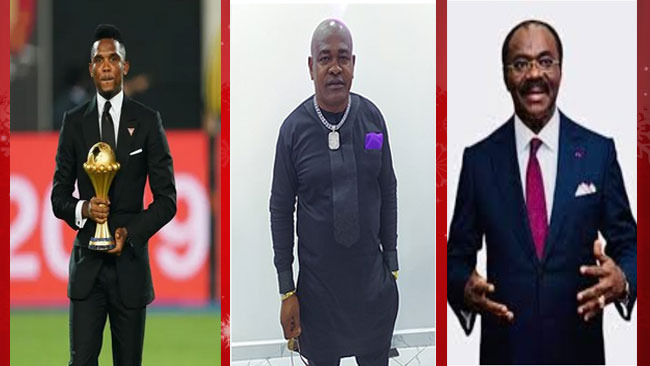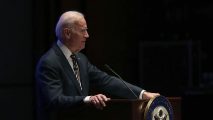26, February 2017
Consortium announces massive ghost town campaign on Monday 2
The Cameroon Anglophone Civil Society has announced a civil disobedience campaign for Monday the 27th of February 2017 as political tensions mount in the La Republique du Cameroun over the Biya’s regime failure in resolving the Southern Cameroons crisis.
The interim leaders of the Consortium: Tampa Ivo and Mark Bara have appealed to Southern Cameroonians in the Diaspora to mobilize their people back home and to forge ahead with the struggle. Ever since the Biya Francophone regime detained the leaders of the Cameroon Anglophone Civil Society Consortium, there have been many diabolic plots to stifle the Consortium and put an end to the Anglophone uprising. On Saturday in connection with the boycott policy and ghost operation, Southern Cameroonians snubbed the Mount Cameroon Race of Hope. Cat calls greeted some of the Francophone officials who traveled to Buea for the event.
The Consortium statement added that some slight modifications have been made in the resistance and ghost town operations. For three months now, scores of Southern Cameroonians have been killed and hundreds arrested by troops loyal to the Biya Francophone Beti Ewondo regime. In December last year, many Southern Cameroonians were killed in Buea, Kumba, Kumbo, Bamenda and Njakiri when the Cameroon Anglophone Civil Society showed strong opposition to the so-called Ad Hoc Committee created by the government.
Opposition politicians in French Cameroun have recently called for President Biya to release all those arrested in West Cameroon and urged authorities to probe the rapes and killings going on in the Anglophone regions of the country. Biya has so far not declared his intention to run in the presidential vote set for 2018 as his ruling CPDM party has been politically volatile in recent times in the Anglophone regions. The country is now experiencing a revolution that could unseat the president.
By Sama Ernest





























26, February 2017
Anglophone Crisis: Harmony Bobga on The Stream on Al Jazeera 0
Harmony Bobga Mbuton, president of Cameroon’s North West Lawyers Association, returned to The Stream on Al Jazeera this week, just over two months since the show originally explored the protests among his country’s English-speaking communities, who claim French-speaking President Paul Biya’s government is treating them as second-class citizens.
The Stream host Femi Oke says that, since that show, “The government of Cameroon has pulled the plug on the internet and banned public gatherings in the regions fraught with tensions. What started as strikes for bilingualism in the Northwest and Southwest territories have revealed very deep political divides that spread beyond language, culture and geography.”
On The Stream in December, Issa Tchiroma Bakary, the Minister of Communications, promised negotiations but Mbuton says these broke down quickly. “In fact, I was part of the negotiations that ensued and took place in Yaounde on 27-28 December 2016. The government had constructed the questions that had to be dealt with in the negotiation to suit their own purpose. We walked out of the dialogue and the next thing we heard was that they started arresting us, which is what forced me to flee from Cameroon, through Nigeria to here [Washington DC] now.”
Mbuton’s wife and children are still in Cameroon, where he says, “The situation is bad,” comparing it to “what happened in Rwanda when the genocide began.” He claims that people are being arrested and taken away, with their families unable to find out where. “It is tipping into the point where the population is saying that even with their empty hands and sticks, they are ready to start providing resistance to protect themselves.”
The media and internet blackout makes it difficult to verify claims like this; as Mbuton says, the internet ban has meant “that the government has operated behind the curtains because there is no easy access to information within the territory anymore.” Mbuton says people are using smartphones to send images and information out to the world by traveling to the French-speaking parts of Cameroon where there is still internet, “but it’s not flowing as it was.“
Since the protests began nearly four months ago, Biya has signed a decree establishing a national commission to promote bilingualism and has addressed protesters several times in major speeches. At least several hundred protesters have been arrested. Some are being tried for terrorism for allegedly calling for secession of the Anglophone regions. They could face the death penalty if convicted.
Mbuton says the strike is ongoing and international protests are increasing. Even Cameroon’s recent victory at the African Cup of Nations was not enough to unite the country. “The provocative move to go and show off the African Cup that was won by Cameroon was welcomed by ghost towns,” says Mbuton. “People abandoned the streets. Only the entourage from Yaounde was parading the streets – in military vehicles.